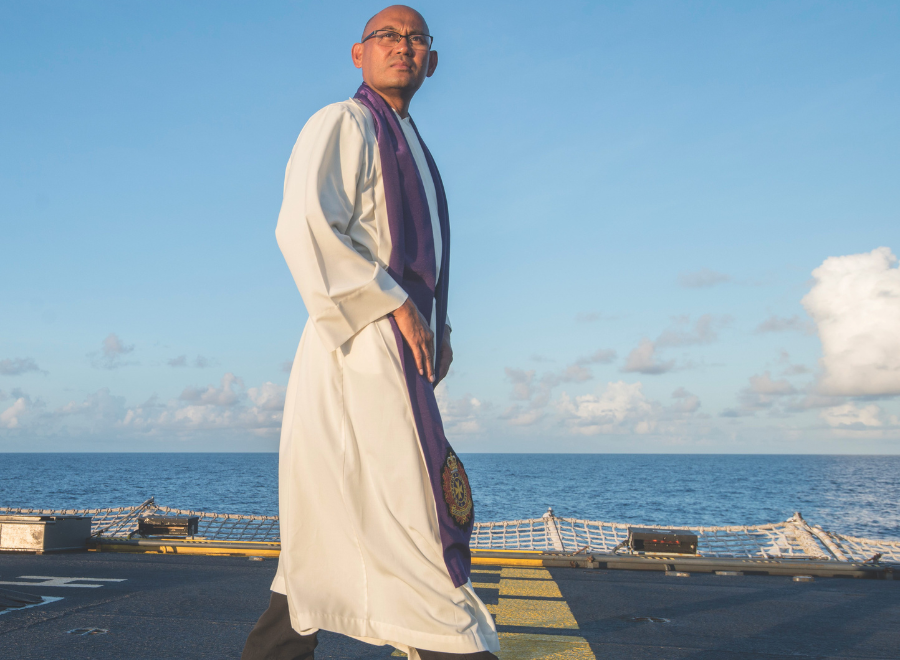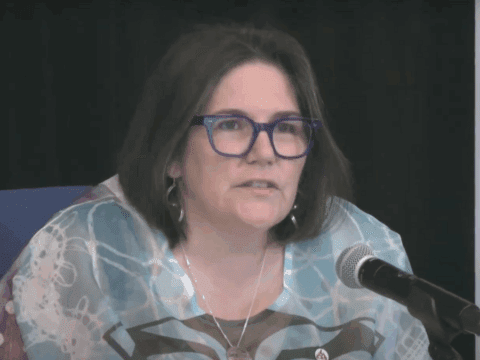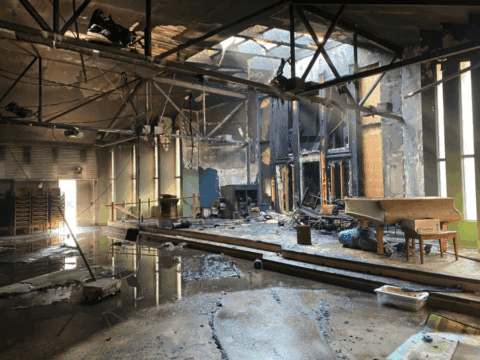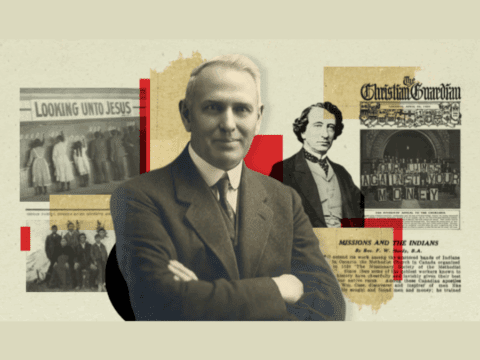Moley Mangana spoke with Mike Milne for a series on Intriguing United Church people you may not know but should.
I was minister at Montreal Japanese United from 2001, and in 2005 we had a member who is an army captain and was deployed to Afghanistan. So we had been praying for him and his family and also for our troops. And when he came back, he encouraged me and said, “Reverend, why not join the military as a padre or a chaplain?”
I told him, “I am too brown, my accent is too thick and there is a security concern because I was born outside Canada.” But he said, “No, you are duly recognized by the United Church, and I think you are okay.” I told him that most of my training is from the Philippines, and he told me, “No, I will let my padre call you.” And it so happened that his padre is a Lutheran minister who lived only a block away from my church, and I knew him. He is a regular Forces chaplain and he has become my friend.
I joined the chaplaincy in 2009. My first posting was in Edmonton, a hard-core infantry group, the 3rd Battalion, Princess Patricia’s Canadian Light Infantry. I was there as a rear-party padre during Operation Attention, which was the training mission to train the [Afghan] army and police right after the battle mission in Afghanistan. So I didn’t go to Afghanistan but stayed in Canada to receive all the people returning.
There are so many reasons why members have to come back [from missions]. They may have family issues, which are classified as compassionate cases; sometimes it could be medical. And the deployment in Afghanistan was very stressful, so some of the cases were mental health issues. I can’t say more than that, but that is the case.
When we are confronted with death or the threat of death, people tend to question the meaning of life and death. In the military, it’s very popular to say, “I am spiritual but not religious.” But I would say during deployment in Afghanistan, many people had spiritual and religious experiences.
Onboard ship, I wake up early in the morning and go down to the galley and serve breakfast to the junior ranks, which is master seamen and below. They comprise about 50 percent of the crew. And after serving, I go up to the wardroom where the officers are and have breakfast with them. So I am maximizing my ministry of presence. As a padre, my identity is the cross. So I can go up and down in the ranks without any restrictions. There are about 260 people on the ship.
When I was young, I wanted to join the military, but that was during the time of [Philippine President Ferdinand] Marcos. My mom told me, “No, you are not going to join the military” — because at that time the military was just a tool of Marcos to oppress people. But there was a desire.
I am Baptist-trained, but my general inclination is really leaning toward the United Church. And I am feeling very comfortable and very happy and proud being United Church. Central Philippine University was where I went to seminary.
My girlfriend at the time, Allane, and I wanted to get married. But she had an opportunity to come to Canada in 1995 [to work as a caregiver]. So we decided not to get married. Our understanding was that if it is really God’s will that we be together, then it will happen. And indeed, God did find a way. I came to Canada in 1998.
In the Philippines, my theological inclination is considered to be very ecumenical and interfaith and a little bit liberal. But when I joined The United Church of Canada, my colleagues at United Theological College [in Montreal] told me that I am conservative.
When you’re a padre, people want to make jokes and tease you. And they love it. So you have to be a sport. And if you are not game, then you may be bothered by that. It is also very military in nature that they like to tease you. And if they are not teasing you, then it means you are not close.
***
This story first appeared in The United Church Observer’s November 2014 issue with the title “Moley Mangana, United Church military chaplain.”














